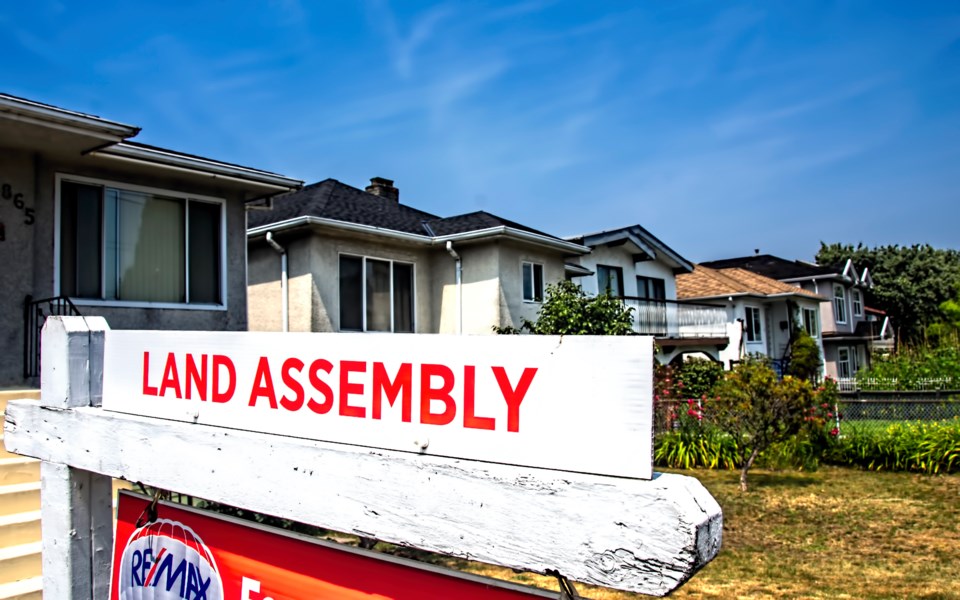A widespread government proposal to create more affordable housing through large-scale rezoning of detached-house neighbourhoods into multi-unit housing rentals has run into a problem.
Many single-detached house owners, fearing tax exposure, want nothing to do with the missing middle plan that has been endorsed by senior governments and municipalities from Victoria, British Columbia to Halifax, Nova Scotia.
In both Ontario and С����Ƶ, proposed provincial legislation would allow multiple residential units on single-detached lots without the need for bylaw amendments.
С����Ƶ is expected to release details of its density zoning plan this fall.
In January 2023, Victoria legislated a Missing Middle Housing Initiative. It allows duplexes to four-plexes and townhouses to be built in traditional single-family areas.
The City of Vancouver goes a step further with its proposed policy to allow up to six units of housing on all land in the city now zoned for single houses and to discourage the construction of new detached houses by restricting the size of new builds.
This policy will proceed to public hearings in September 2023.
Missing middle initiatives are also in place, or proposed, in Edmonton, Ottawa, Toronto and Halifax.
In each city, city planners and proponents forecast a rush of applications from detached house owners to rezone to higher density.
But this rush may not happen.
In Victoria, after seven months, not a single application has come forward from a detached house owner willing to turn their private land into a multi-unit rental complex, according to Victoria city councillor Chris Coleman.
Opposition to the missing middle is growing in Vancouver, where the benchmark detached house price is now north of $2.5 million.
Vancouver’s plan would allow four to six homes to be built on most RS zoned lots, or 60 per cent of the city’s buildable land, Christopher Higgins, senior green building planner with the City of Vancouver, told Glacier Media.
Capital gains tax
It could also expose house owners to higher federal taxes and municipal development fees.
“Many detached house owners are not willing to risk their financial future and peace of mind by jumping on board a plan that they fear, rightly, will transform their quiet communities and expose them to the federal capital gains tax that could grab up to 50 per cent of their real estate equity,” said realtor Kevin Skipworth, broker manager of Dexter Realty Associates of Vancouver.
Canada Revenue Agency (CRA) notes that only a private residence is immune from capital gains tax on real estate —currently at 50 per cent.
“If the property was solely your principal residence for every year you owned it, you do not have to pay tax on the gain. If at any time during the period you owned the property, it was not solely your principal residence, you might not be able to benefit from the principal residence exemption on all or part of the capital gain,” according to CRA.
Also, under the missing-middle plans, Vancouver detached house owners opting for higher density would pay GST on new building or renovation, and higher property taxes. Owners would also be required to pay development cost charges or “bonus density” fees in any space used for other than lower-cost rentals. As of this September, these fees range from around $4 per square foot in East Vancouver to $85 per square foot along the Cambie Corridor on Vancouver’s West Side.
Also, С����Ƶ rental increases would also be restricted to 2 per cent per year under provincial legislation, despite any rising costs for taxes, civic fees and utilities to create the rentals.
“Private detached house owners are somehow, miraculously, expected to deliver what seasoned developers, city planners and other bureaucrats cannot: low-cost rentals in Vancouver,” Skipworth said.
Vancouver real estate investor Ozzie Jurock explained that a detached house owner may be better off selling their property to a speculator, and therefore avoiding the capital gains tax and the cost of conversion to higher-density rentals, rather than attempting to act as a missing-middle rental developer themselves.




